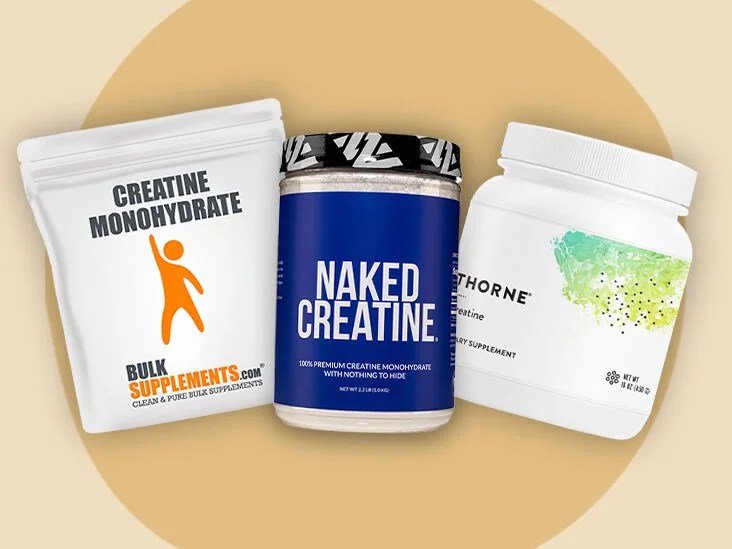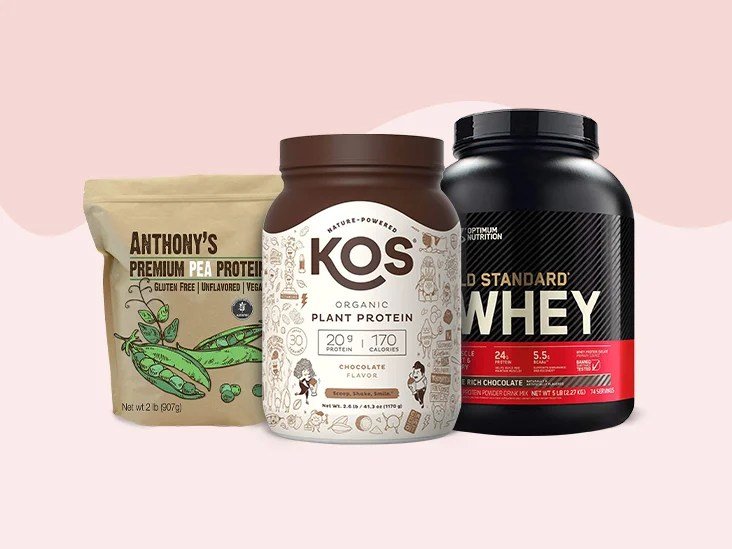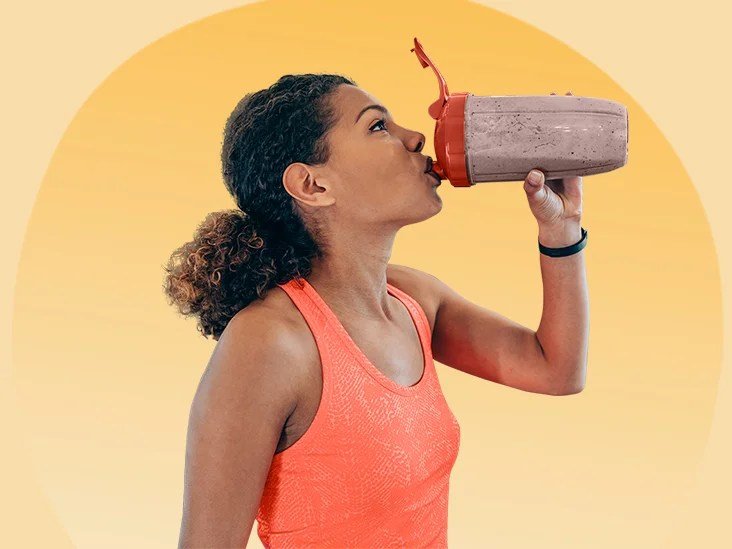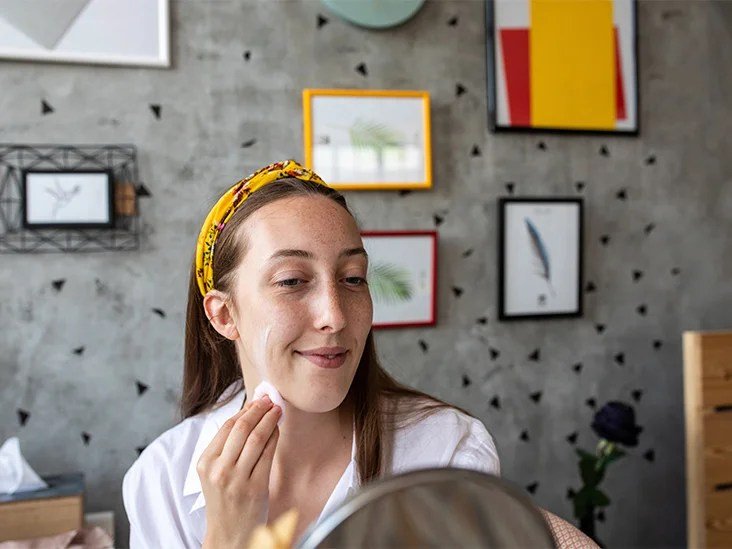Vitamin & Supplement Product Reviews
A Dietitian’s Picks of the 14 Best Vitamin D Supplements in 2023
We include products we think are useful for our readers. If you buy through links on this page, we may earn a small commission or other tangible benefit. Optum Store, Optum Perks, and Healthline Media are owned by RVO Health. Here’s our process.
How we vet brands and products
Healthline only shows you brands and products that we stand behind.
Our team thoroughly researches and evaluates the recommendations we make on our site. To establish that the product manufacturers addressed safety and efficacy standards, we:
- Evaluate ingredients and composition: Do they have the potential to cause harm?
- Fact-check all health claims: Do they align with the current body of scientific evidence?
- Assess the brand: Does it operate with integrity and adhere to industry best practices?
We do the research so you can find trusted products for your health and wellness.
Vitamin D is a fat-soluble vitamin involved in several critical bodily processes, including calcium and phosphorus absorption, bone health, and muscle growth and development (1).
Also sometimes referred to as the sunshine vitamin, vitamin D is produced naturally by skin cells in response to sun exposure (2).
However, a survey published in 2018 found that 40% of Americans are deficient in vitamin D, especially African Americans, people who smoke, those who get little sun exposure or regularly use sunscreen, adults over age 65, and people with obesity or diabetes (3, 4).
Because vitamin D is found naturally in very few food sources, it can be difficult to meet your needs through diet alone (5).
As such, many people may wish to take a vitamin D supplement, especially if they don’t regularly get sun exposure or consume foods fortified with vitamin D.
Here are 14 of the best vitamin D supplements for 2022.
- Best high dose: Pure Encapsulations D3 10,000 IU,
- Best vegan: Pure Encapsulations Vitamin D3 (Vegan) Liquid
- Best gummies: Nordic Naturals Zero Sugar Vitamin D3 Gummies 1,000 IU
- Best drops: Thorne Vitamin D/K2
- Best liquid: Designs for Health Liposomal D Supreme
- Best chewable: NOW Foods Chewable Vitamin D3 5,000 IU
- Best prenatal with vitamin D: FullWell Prenatal Multivitamin
- Best vitamin D subscription: Care/Of, Persona Vitamin D – Vegan – 1000 IU
- Best for kids: Carlson Labs Kid’s Super Daily D3 + K2
- Best for infants: Nordic Naturals Baby’s Vitamin D3
Vitamin D is an essential nutrient that plays a key role in many aspects of health.
In particular, vitamin D increases the absorption of calcium, which is necessary for maintaining strong and healthy bones (6).
It also regulates immune function. In fact, vitamin D deficiency may even be associated with increased susceptibility to infections and autoimmune disorders (7).
Furthermore, vitamin D deficiency has been linked to a range of chronic conditions, including heart disease, type 2 diabetes, and obesity (8, 9, 10).
However, more research is needed to evaluate how vitamin D could impact these conditions and whether supplementation may be beneficial.
Because buying supplements can be confusing and overwhelming, we rounded up the best vitamin D supplements using the following criteria:
- Effectiveness. The products listed below contain vitamin D3 for optimal absorption.
- Ingredients. We looked for supplements that are free of unnecessary ingredients such as fillers and artificial sweeteners and colors.
- Dietitian recommendation. All the products listed below were handpicked by a registered dietitian.
- Price. We included products to suit a range of budgets.
Why you should trust us
Every brand and product on our list has been reviewed by registered dietitians and vetted to ensure that it aligns with Healthline’s brand integrity standards and approach to well-being. Each product in this article:
- adheres to allowable health claims and labeling requirements, per Food and Drug Administration (FDA) regulations
- is manufactured in facilities that adhere to current good manufacturing practices (CGMPs) established by the FDA
- is produced by a medically credible company that follows ethical, legal, and industry best standards
- is made by a company that provides objective measures of trust, such as having its supplements validated by third-party labs
A note on price
General price ranges are indicated below with dollar signs ($–$$$). One dollar sign means the product is rather affordable, whereas three dollar signs indicate a higher cost.
Generally, prices range from $0.03–$1.67 per serving, or $12.39–$49.95 per container, though this may vary depending on where you shop.
Note that serving sizes are generally 1 or 2 capsules per day. Liquid supplement dosages range from 1–5 drops or pumps daily.
Pricing guide
- $ = under $0.10 per serving
- $$ = $0.10–$0.50 per serving
- $$$ = over $0.50 per serving
Best high dose
Pure Encapsulations D3 10,000 IU
- Price: $$
- Dose: 1 capsule per day
- Percentage of the Daily Value (DV): 1,250%
- Who it’s best for: people who need a high dose vitamin D supplement
For people with a severe vitamin D deficiency, taking a high dose supplement is necessary, though it’s important to consult a healthcare professional for a personalized dosage recommendation (4).
Taking at least 10,000 IU of vitamin D daily is often recommended for people who have been diagnosed with a deficiency. This may be followed by a maintenance dose of up to 6,000 IU once levels normalize (4).
These capsules contain 10,000 IU of vitamin D3 per serving and are hypoallergenic, non-GMO, and gluten-free.
Pure Encapsulations is also a trusted brand that claims its products are third-party tested and manufactured in facilities that exceed the standards of U.S. Pharmacopeia (USP), a third-party organization that sets strict product-specific standards for supplements.
Pros
- third-party tested
- gluten-free
- non-GMO
- one-a-day formulation
- vegetarian-friendly
Cons
- high dose not appropriate for all people
- not suitable for vegans
NOW Foods D3 10,000 IU
- Price: $$
- Dose: 1 softgel every 3 days
- Percentage of the DV: 1250%
- Who it’s best for: people who need a high dose vitamin D supplement and prefer softgels over capsules
NOW Foods is another excellent supplement brand that makes high dose vitamin D supplements.
This specific product provides 10,000 IU of vitamin D3 in each softgel capsule.
It’s also non-GMO, kosher, and free of dairy, eggs, sugar, soy, and corn.
According to the company’s website, all NOW supplements are tested multiple times throughout the manufacturing process and are produced in third-party certified facilities.
Just keep in mind that while this product is appropriate for some people, it’s important to check with a healthcare professional before taking high dose vitamin D supplements.
Pros
- non-GMO
- only 1 softgel every 3 days
- third-party certified
Cons
- not suitable for vegetarians or vegans
- high dose not appropriate for all people
Best vegan
Pure Encapsulations Vitamin D3 (Vegan) Liquid
- Price: $$
- Dose: 5 drops per day
- Percentage of the DV: 125%
- Who it’s best for: people who prefer a liquid form and are following a vegan diet
Many vitamin D3 supplements are derived from fish or sheep’s wool, meaning they’re inappropriate for vegans (5).
As a result, many vegan products contain ergocalciferol (vitamin D2) — a form of vitamin D that’s vegan since it’s derived from yeast or mushrooms.
However, research shows that D2 isn’t as effective at increasing blood levels of the vitamin as D3 is (11).
Recently, companies have found a way to manufacture vegan-friendly vitamin D3.
Pure Encapsulations, for example, offers a liquid D3 product that’s derived from sustainably harvested lichen.
It’s not only vegan but also free of gluten, tree nuts, peanuts, genetically modified organisms (GMOs), and artificial colors or flavors.
What’s more, Pure Encapsulations thoroughly tests all products and manufactures supplements in a facility that exceeds the standards set by USP.
The company also states that its supplements are third-party tested by organizations such as Eurofins, Intertek, Silliker, and Advanced Laboratories.
Pros
- third-party tested
- vegan-friendly source of vitamin D3
- certified gluten-free
- easy-to-take liquid form
- non-GMO
Cons
- none
HUM Nutrition Here Comes the Sun
- Price: $$
- Dose: 1 softgel per day
- Percentage of the DV: 250%
- Who it’s best for: people looking for a vegan-friendly, easy-to-swallow subscription option
HUM Nutrition is a company that offers high quality supplements and personalized nutrition advice from its in-house team of registered dietitians.
This softgel supplement contains vitamin D3 derived from lichen, making it a great option for vegans and vegetarians.
It’s also non-GMO, gluten-free, and made without any artificial sweeteners, flavors, colors, or preservatives.
Plus, HUM Nutrition products are sustainably sourced, triple-tested for purity, and evaluated for potency by third-party labs.
Pros
- third-party tested
- vegan source of vitamin D3
- non-GMO
- gluten-free
- one-a-day formulation
Cons
- none
Best gummies
Nordic Naturals Zero Sugar Vitamin D3 Gummies 1,000 IU
- Price: $$
- Dose: 1 gummy per day
- Percentage of the DV: 125%
- Who it’s best for: people who prefer gummies
Gummy vitamins are popular among adults and kids alike. Although they’re fun to chew, most contain added sugar.
If you’re trying to reduce your sugar intake, opt for Nordic Naturals’ sugar-free vitamin D3 gummy, which is sweetened with xylitol and colored with fruit and vegetable juice.
In addition to being vegetarian and non-GMO, it’s third-party tested for purity.
Plus, Nordic Naturals provides a certificate of analysis (COA) for every supplement, which is a document that confirms that a product meets its required specifications.
Also, keep in mind that sugar alcohols like xylitol may cause some people to experience digestive issues, such as gas, bloating, and diarrhea.
Pros
- third-party tested
- easy to take
- free of added sugar
- vegetarian-friendly
- non-GMO
Cons
- contains xylitol, which some people may prefer to avoid
- not suitable for vegans
Best drops
Thorne Vitamin D/K2
- Price: $
- Dose: 2 drops per day
- Percentage of the DV: 125%
- Who it’s best for: people who prefer drops and want the additional boost of vitamin K
As the drops can be mixed into any food or beverage, Thorne Vitamin D/K2 offers a convenient way to take your dose of vitamin D.
Thorne is a trusted supplement brand certified by the Therapeutic Goods Association (TGA), a regulatory agency run by the Australian Department of Health.
Thorne’s liquid vitamin D supplement also provides vitamin K2, which works synergistically with vitamin D and is necessary for heart and skeletal health (12).
Thorne products are manufactured in a facility that’s certified by NSF International and undergo four rounds of testing in the company’s in-house laboratories.
This supplement is also free of soy, gluten, and dairy and made without any artificial flavors or additives.
Pros
- affordable
- third-party tested and certified
- gluten-free
- easy-to-take liquid form
- provides 167% of the DV for vitamin K2
Cons
- not suitable for vegans or vegetarians
Best liquid
Designs for Health Liposomal D Supreme
- Price: $$$
- Dose: 1 pump per day
- Percentage of the DV: 313%
- Who it’s best for: people who prefer a liquid supplement
Designs for Health’s Liposomal Vitamin D Supreme liquid drops combine vitamin D with vitamins K1 and K2.
Liposomes are tiny spheres of fat used as carriers for vitamin D and other fat-soluble nutrients in certain supplements (13).
Interestingly, liposomal forms of this vitamin have been shown to be better absorbed than tablet forms of vitamin D supplements (13).
Vitamins K and D work synergistically in your body, meaning that they enhance each other’s effects. Some research indicates that taking both may promote bone and heart health to a greater extent than taking vitamin D alone (14).
In addition to being free of dairy, gluten, and GMOs, Designs for Health supplements are produced in a facility that complies with the CGMPs set by the FDA.
According to the company’s website, Designs for Health supplements are tested for identity, purity, quality, strength, and composition in its in-house laboratories. However, products are not third-party tested.
Pros
- also provides 271% of the DV for vitamin K
- easy-to-take liquid form
- gluten-free
- vegetarian-friendly
- non-GMO
Cons
- expensive
- not suitable for vegans
- not third-party tested
Best chewable
NOW Foods Chewable Vitamin D3 5,000 IU
- Price: $$
- Dose: 1 chewable tablet every 2 days
- Percentage of the DV: 625%
- Who it’s best for: people who prefer a chewable option
Some people prefer chewable vitamins over capsules, liquids, gummies, and pills. Yet, many chewables contain added sugar.
Unlike other chewable vitamin D supplements, NOW’s Chewable Vitamin D3 5,000 IU is sweetened with the sugar alcohols xylitol and sorbitol, as well as natural vanilla and peppermint flavors.
This product is also kosher, soy-free, and gluten-free. NOW Foods also adheres to good manufacturing practices and is certified by UL Solutions.
Again, keep in mind that sugar alcohols can cause digestive problems, such as stomach upset and diarrhea, especially when consumed in large amounts. Also, because this supplement is held together with cellulose, it’s less absorbable than oil-based capsules (13).
Pros
- third-party certified
- free of added sugars
- comes in a chewable form, which some people may prefer
- only 1 chewable tablet every 2 days
Cons
- contains sugar alcohols, which some people may prefer to avoid
- less absorbable than oil-based capsules
- not suitable for vegans or vegetarians
Best prenatal with vitamin D
FullWell Prenatal Vitamin
- Price: $$$
- Dose: 8 capsules per day
- Percentage of the DV: 667%
- Who it’s best for: people who are pregnant or breastfeeding and want a comprehensive prenatal vitamin
It’s recommended that pregnant women supplement with 600 IU of vitamin D3 per day, though some research suggests that higher doses may support better maternal and infant outcomes (15).
In fact, experts suggest that to maintain blood levels of this nutrient, which may help protect against pregnancy-related complications, pregnant women should take up to 4,000 IU of D3 per day (15, 16).
Breastfeeding women may need even more. Some studies indicate that a daily dose of 6,400 IU promotes optimal vitamin D levels in both breastfeeding women and breastfed infants, though it’s best to consult a healthcare professional for a personalized recommendation (17).
Nonetheless, most prenatal supplements contain only 400–1,000 IU of this vitamin per dose.
FullWell Prenatal is a prenatal vitamin created by registered dietitians that delivers 4,000 IU of vitamin D per dose, along with other necessary nutrients for pregnant or breastfeeding women.
Just keep in mind that a serving size is eight capsules, though the company’s website states that you can open the capsules and mix the powder into a smoothie or other cool beverage.
Pros
- third-party tested
- certificate of analysis (COA) available upon request
- high in vitamin D
- uses chelated minerals for optimal absorption
- easy to digest
Cons
- 8-capsule serving size
- should be paired with a prenatal omega-3 supplement
- may not be suitable for vegans
- shipping fee for orders under $149
Ritual Prenatal Multivitamin
- Price: $$$
- Dose: 2 capsules per day
- Percentage of the DV: 333%
- Who it’s best for: people who are planning for pregnancy or are pregnant and are looking for a more minimal prenatal vitamin to help fill gaps in their diet
Ritual is a subscription-based company that offers a prenatal vitamin with 2,000 IU of vitamin D per dose, along with other necessary nutrients for pregnant or breastfeeding women.
Ritual provides detailed information on ingredient sourcing and uses a third-party lab to test each product twice for contaminants.
These prenatal capsules are also vegan, non-GMO, and free of major allergens, artificial colors, and fillers.
Just keep in mind that Ritual’s prenatal is less comprehensive than FullWell’s, as it’s lower in choline and doesn’t contain nutrients like vitamin A, many B vitamins, and calcium.
Still, it’s a good option for those who maintain a balanced diet and prefer to take just 2 capsules per day.
Pros
- third-party tested
- vegan-friendly
- contains DHA omega-3
- non-GMO
- gluten-free
Cons
- not a comprehensive prenatal multivitamin
Best vitamin D subscription
Care/of
- Price: $$
- Dose: 1 capsule per day
- Percentage of the DV: 125%
- Who it’s best for: people who like having individual daily vitamin packs
Care/of is a personalized, subscription-based supplement company that offers two vitamin D products — The Sunny D3 and The Vegan Sunny D3.
Both products contain 1,000 IU per capsule. The vegan supplement contains vitamin D3 sourced from algae, meaning it’s safe for those following a vegan diet.
Additionally, Care/of sources ingredients from trusted suppliers around the globe and conducts three rounds of testing throughout the manufacturing process to ensure safety and quality.
Pros
- vegan-friendly
- non-GMO
- gluten-free
- one-a-day formulation
- third-party tested
Cons
- requires a subscription
Persona Vitamin D 1000 IU
- Price: $$
- Dose: 1 softgel per day
- Percentage of the DV: 125%
- Who it’s best for: people who like having individual daily vitamin packs
Persona Nutrition is another subscription-based company that offers personalized supplements to consumers based on an assessment quiz that asks questions about their diet and lifestyle.
The company offers several vitamin-D-based products, including its Vitamin D softgel capsules.
In addition to providing 125% of the DV for vitamin D, it’s made without many common allergens, including wheat, fish, soy, peanuts, gluten, and corn.
Still, because Persona supplements are produced in facilities that handle major allergens, this vitamin D supplement isn’t suitable for people with severe food allergies or intolerances.
Persona Nutrition also notes that all products are tested for purity at each stage of production. However, it doesn’t mention whether products also undergo third-party testing by an independent lab.
Pros
- packaged in convenient daily packs
- one-a-day formulation
Cons
- not third-party tested
- not vegan-friendly
Best for kids
Carlson Labs Kid’s Super Daily D3 + K2
- Price: $
- Dose: 1 drop per day
- Percentage of the DV: 125%
- Who it’s best for: kids ages 4 and older
Vitamin D is necessary for children as well as adults (18).
Plus, some children may be at risk of a deficiency, particularly those who take epilepsy medication or have absorption issues (19, 20).
Still, some children’s vitamin supplements contain added sugar to increase palatability.
Formulated for kids ages 4 and older, Carlson Labs’ Kid’s Super Daily D3 + K2 liquid drops only contain D3, vitamin K2, and medium-chain triglycerides as the carrier oil, making it a healthier choice for your child.
While it’s vegetarian, dairy-free, and certified non-GMO by the International GMO Evaluation and Notification program, Carlson Labs doesn’t specify whether products undergo any other third-party testing.
Pros
- liquid formulation is easy for kids to take
- no added sugar
- certified non-GMO
- vegetarian-friendly
- affordable
Cons
- may not be third-party tested
- not suitable for kids under age 4
Best for infants
Nordic Naturals Baby’s Vitamin D3
- Price: $
- Dose: 1 drop per day
- Percentage of the DV: 100%
- Who it’s best for: infants up to 12 months old
Vitamin D is essential for proper bone development in babies (21).
Because breast milk contains inadequate amounts of vitamin D, the American Academy of Pediatrics recommends that all breastfed and partially breastfed infants receive 400 IU of vitamin D per day (21).
Nordic Naturals Baby’s Vitamin D3 is one of the best options, as it contains 400 IU of vitamin D3 per drop, which meets 100% of the DV for infants up to 12 months old.
The supplement is also free of artificial additives, with certified organic olive oil as the only other ingredient.
What’s more, the supplement is easy to use, as the oil can be applied to the nipple during breastfeeding, mixed into a bottle of pumped breast milk, or dropped directly into an infant’s mouth.
Pros
- third-party tested
- minimal ingredients
- non-GMO verified
- easy-to-administer drops
Cons
- suitable only for babies up to 12 months old
Here’s a quick look at how our top picks compare:
| Produce and Price range |
Type/ Dose/ % of DV |
Third-party tested | Best for |
|---|---|---|---|
| Carlson Labs Kid’s Super Daily D3 + K2 $ |
liquid 1,000 IU 125% |
no | kids 4+ years old |
| Care/of $$ |
capsules 1,000 IU 125% |
yes | vegan-friendly subscription |
| Designs for Health Liposomal D Supreme $$$ |
liquid 2,500 IU 313% |
no | people who prefer a liquid form |
| FullWell Prenatal $$$ |
capsules 4,000 IU 667% |
yes | pregnancy and breastfeeding |
| HUM Nutrition Here Comes the Sun $$ |
capsules 2,000 IU 250% |
yes | easy-to-swallow vegan option |
| Nordic Naturals Baby’s Vitamin D3 $ |
liquid 400 IU 100% |
yes | infants up to 12 months old |
| Nordic Naturals Zero Sugar Vitamin D3 Gummies $$ |
gummies 1,000 IU 125% |
yes | people who prefer gummies |
| NOW Foods Chewable Vitamin D3 $$ |
tablets 5,000 IU 625% |
yes | people who prefer a chewable form |
| NOW Foods D3 $$ |
capsules 10,000 IU 1,250% |
yes | high dose |
| Persona Vitamin D $$ |
softgel capsules 1,000 IU 125% |
no | convenient daily vitamin packs |
| Pure Encapsulations D3 $$ |
capsules 10,000 IU 1,250% |
yes | high dose |
| Pure Encapsulations Vitamin D3 (Vegan) Liquid $$ |
liquid 1,000 IU 125% |
yes | third-party tested liquid |
| Ritual Prenatal Multivitamin $$$ |
capsules 2,000 IU 250% |
yes | prenatal to help fill nutrient gaps |
| Thorne Vitamin D/K2 $ |
liquid 1,000 IU 125% |
yes | third-party tested drops |
Before you decide on a vitamin D supplement, it’s a good idea to get your levels tested. A blood test is the only way to know whether your levels are deficient, insufficient, sufficient, or optimal.
A healthcare professional can order blood work and help you determine an appropriate dosage.
Keep in mind that if you’re severely deficient in vitamin D, a healthcare professional may recommend high dose supplements or injections for a certain period, followed by a daily maintenance dose.
Other factors to consider when shopping for vitamin D supplements include:
- Ingredients. Many products, especially liquids, gummies, and chewables, contain added sugars and artificial flavorings and colors.
- Form of vitamin D. Vitamin D supplements contain either ergocalciferol (vitamin D2) or cholecalciferol (vitamin D3). While both forms can increase levels of vitamin D effectively, vitamin D3 can increase levels more significantly and for longer (5).
- Quality. Look for products that are rigorously tested for purity, quality, and accuracy, ideally from a third-party organization like USP or ConsumerLab.
- Dose. Choose a product containing an appropriate dose of vitamin D to meet your needs. Keep in mind that the recommended amount of vitamin D varies by age and whether you’re looking to maintain adequate levels of vitamin D or are deficient (4).
The amount of vitamin D that you need per day depends on multiple factors, including your age and health status.
The recommended DV for vitamin D is 800 IU for adults and children over age 4 (5).
However, people who have a deficiency may require a larger amount.
To treat a vitamin D deficiency, a healthcare professional may recommend a vitamin D3 dosage of 6,000 IU per day or 50,000 IU per week for 8 weeks (4).
This may be followed by a maintenance dosage of 1,000–2,000 IU per day once blood levels of vitamin D are sufficiently restored (4).
Keep in mind that both Persona and Care/of offer only vitamin D3 supplements that provide 1,000 IU per capsule.
Even though this dose may be appropriate for people who want to maintain already-optimal vitamin D levels, those with low or deficient vitamin D levels typically need a much higher dose to increase their vitamin D blood level to an optimal level (4).
If you have received a diagnosis of vitamin D deficiency, a healthcare professional can prescribe a high dose supplement or recommend an appropriate dosage to meet your needs.
There are two main forms of vitamin D: vitamin D2 and vitamin D3.
Vitamin D2, also known as ergocalciferol, is derived from plant-based sources such as yeast and mushrooms (22).
Vitamin D3, also known as cholecalciferol, is an active form that is produced in the skin in response to sun exposure. It’s also found in certain animal sources of food, including egg yolks and beef liver (5, 23).
Though both forms are well absorbed and can increase blood levels of vitamin D, vitamin D3 can increase levels more significantly and for longer than vitamin D2 (5).
{
“@context”: “https://schema.org”,
“@type”: “FAQPage”,
“mainEntity”: [{
“@type”: “Question”,
“name”: “Are vitamin D supplements necessary?”,
“acceptedAnswer”: {
“@type”: “Answer”,
“text”: “If you have a vitamin D deficiency, taking a supplement may be beneficial.
Many people are at a higher risk of deficiency, including older adults, those with darker skin, people with certain health conditions, and individuals who don’t regularly get sun exposure (4).
Additionally, vitamin D supplements may be recommended for those with health conditions that affect nutrient absorption, such as cystic fibrosis, inflammatory bowel disease, celiac disease, and short bowel syndrome (4).
If you suspect that you may have a vitamin D deficiency, it’s best to consult a healthcare professional to have your levels checked and determine whether a vitamin D supplement is necessary. Learn More”
}
},{
“@type”: “Question”,
“name”: “What is the best form of vitamin D to take?”,
“acceptedAnswer”: {
“@type”: “Answer”,
“text”: “Vitamin D supplements are available in two forms: vitamin D2 and vitamin D3.
Both forms can increase blood levels of vitamin D. However, vitamin D3 can raise vitamin D levels higher and for longer than vitamin D2, which may make it a better option (5). Learn More ”
}
},{
“@type”: “Question”,
“name”: “Is it good to take vitamin D supplements every day?”,
“acceptedAnswer”: {
“@type”: “Answer”,
“text”: “Because your body’s fat cells can store vitamin D and release it if needed, some high dose vitamin D supplements or injections are designed to be taken just once per week or month instead of daily (2, 24).
However, taking large amounts of any supplement can be dangerous, and high dose monthly or weekly vitamin D supplements should be taken only under medical supervision.
Therefore, it’s best to check with a healthcare professional before using vitamin D supplements and to take vitamin D only as directed. Learn More”
}
},{
“@type”: “Question”,
“name”: “What are the signs and symptoms of low vitamin D status?”,
“acceptedAnswer”: {
“@type”: “Answer”,
“text”: “In adults, low vitamin D status can cause symptoms such as muscle twitching, mood changes, fatigue, muscle or bone pain, joint stiffness, and weakness (4).
Low vitamin D can also be related to an increased risk of osteoporosis, falls, and fractures.
In children, potential symptoms of vitamin D deficiency include irritability, lethargy, developmental delay, bone changes, and bone fractures (4).
Keep in mind that in some cases, vitamin D deficiency may not cause any symptoms, which can make it difficult to diagnose without a blood test (4) Learn More”
}
}]}
}
Are vitamin D supplements necessary?
If you have a vitamin D deficiency, taking a supplement may be beneficial.
Many people are at a higher risk of deficiency, including older adults, those with darker skin, people with certain health conditions, and individuals who don’t regularly get sun exposure (4).
Additionally, vitamin D supplements may be recommended for those with health conditions that affect nutrient absorption, such as cystic fibrosis, inflammatory bowel disease, celiac disease, and short bowel syndrome (4).
If you suspect that you may have a vitamin D deficiency, it’s best to consult a healthcare professional to have your levels checked and determine whether a vitamin D supplement is necessary.
What is the best form of vitamin D to take?
Vitamin D supplements are available in two forms: vitamin D2 and vitamin D3.
Both forms can increase blood levels of vitamin D. However, vitamin D3 can raise vitamin D levels higher and for longer than vitamin D2, which may make it a better option (5).
Is it good to take vitamin D supplements every day?
Because your body’s fat cells can store vitamin D and release it if needed, some high dose vitamin D supplements or injections are designed to be taken just once per week or month instead of daily (2, 24).
However, taking large amounts of any supplement can be dangerous, and high dose monthly or weekly vitamin D supplements should be taken only under medical supervision.
Therefore, it’s best to check with a healthcare professional before using vitamin D supplements and to take vitamin D only as directed.
What are the signs and symptoms of low vitamin D status?
In adults, low vitamin D status can cause symptoms such as (4):
- muscle twitching
- mood changes
- fatigue
- muscle or bone pain
- joint stiffness
- weakness
Low vitamin D can also be related to an increased risk of osteoporosis, falls, and fractures.
In children, potential symptoms of vitamin D deficiency include (4):
- irritability
- lethargy
- developmental delay
- bone changes
- bone fractures
Keep in mind that in some cases, vitamin D deficiency may not cause any symptoms, which can make it difficult to diagnose without a blood test (4).
Useful supplement shopping guides
Check out these two articles to help make supplement shopping a breeze:
Vitamin D is an important nutrient that plays many critical roles in your body. As many people are deficient in this vitamin, supplements are sometimes needed to maintain optimal levels.
The products above are among the best vitamin D supplements on the market and suit a wide variety of needs. Just keep in mind that for optimal absorption, it’s best to take vitamin D supplements with a meal containing fat, such as olive oil or peanut butter.
Before taking any new supplements, it’s important to speak with a healthcare professional to determine whether — and how much — you need to supplement.







